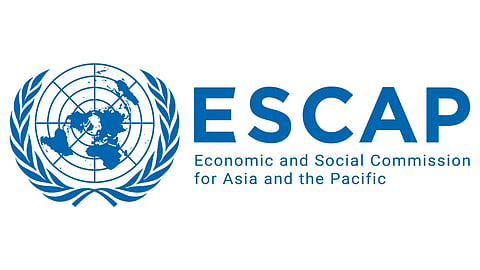
- NEWS
- the EDIT
- COMMENTARY
- BUSINESS
- LIFE
- SHOW
- ACTION
- GLOBAL GOALS
- SNAPS
- DYARYO TIRADA
- MORE

Significant barriers hinder participation in e-commerce of micro, small and medium enterprises (MSMEs) in East Asia given its potential to aid recovery, facilitate cross-border trade and access to new markets.
A report titled The Landscape of B2C E-Commerce Marketplaces in East Asia l ESCAP (unescap.org) said these barriers include limited internet access, rural-urban connectivity gaps, coordination issues in trade facilitation, slow tech adoption, unreliable delivery services, scant provisions for digital trade in agreements, restricted digital payments, and skill gaps among firms.
“Addressing these barriers requires a collaborative and well-informed approach, involving policymakers and industry stakeholders. In particular, comprehensive databases can facilitate a more informed approach to e-commerce activities and policies,” it said.
The report underscored the need for governments to help urgently maintain timely and complete databases on e-commerce markets to allow businesses to take advantage of the growing domestic and international e-commerce markets.
One-of-a-kind study
To bridge this information gap and aid all relevant stakeholders, the United Nations Economic and Social Commission for Asia and the Pacific (UN ESCAP), International Trade Center and the Amsterdam University of Applied Science has conducted a one-of-a-kind regional study to create a database mapping Asian e-commerce marketplace and their characteristics.
Such e-commerce marketplace serves as a platform accessible through a website facilitating the trade in goods between businesses and consumers.
Characteristic info
The final database includes characteristic information on 1,559 relevant, unique and active business to consumer (B2C) goods marketplaces operational, both of domestic and global focus.
The database covers 11 East Asian countries, namely Brunei Darussalam, Cambodia, Indonesia, Lao P.D.R., Malaysia, Mongolia, Philippines, Republic of Korea, Singapore, Thailand and Vietnam.
Meanwhile, a webinar which aims to share the results of the report and individual country briefs that explore the current state of play in e-commerce markets in 11 East Asian countries will be held on 20 June.
The presentation of the reports will be followed by a panel discussion with regional and policy e-commerce experts aimed at contributing to the dialogue on e-commerce opportunities for businesses, especially SMEs, in the region.
